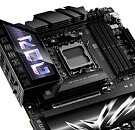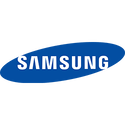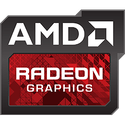
ASML Seeking Approval of Planned New Mega Facility in the Netherlands
Just over a year ago, reports suggested that ASML was considering a potential expansion of its presence at the Brainport Industries Campus (BIC)—nearby to Eindhoven Airport. A "2.5 billion Euro" investment—courtesy of the Dutch government—was floated, alongside an estimated creation of ~20,000 new roles. The Veldhoven-headquartered EUVL photolithography equipment specialist seems to be in a comfortable position, but growing demand for top-level ASML gear has warranted an apparent acceleration of new facility plans. According to local news articles, company and Eindhoven municipality representatives have presented an adjusted timeline—a "northern part" of the BIC campus could welcome new recruits in 2028. Last year's target proposed a further out inauguration; possibly in 2030 or thereafter.
Stijn Steenbakkers—the Alderman for Brainport—outlined the sheer scale of the company's futuristic and uncharacteristically huge footprint: "over the past year, we have worked intensively on the first elaboration of the plans, resulting in the preliminary design of the urban development plan (VOSP) that is now available. Our future, prosperity and well-being are not self-evident. With the current economic developments in the world, it is not a question of whether we should invest in our strategic autonomy. This is of vital importance! By making the expansion of ASML at BIC Noord (North) possible, we dare to opt for the new economy: sustainable, focused on high-tech, innovation and offering solutions for major global social issues...The important points in the VOSP are: approximately 20,000 jobs, approximately 428,000 m² gross floor area for production, and support functions such as offices." Steenbakkers and ASML reps will present their proposals to Eindhoven city councillors in September; transportation and other local infrastructure considerations will be taken into account.
Stijn Steenbakkers—the Alderman for Brainport—outlined the sheer scale of the company's futuristic and uncharacteristically huge footprint: "over the past year, we have worked intensively on the first elaboration of the plans, resulting in the preliminary design of the urban development plan (VOSP) that is now available. Our future, prosperity and well-being are not self-evident. With the current economic developments in the world, it is not a question of whether we should invest in our strategic autonomy. This is of vital importance! By making the expansion of ASML at BIC Noord (North) possible, we dare to opt for the new economy: sustainable, focused on high-tech, innovation and offering solutions for major global social issues...The important points in the VOSP are: approximately 20,000 jobs, approximately 428,000 m² gross floor area for production, and support functions such as offices." Steenbakkers and ASML reps will present their proposals to Eindhoven city councillors in September; transportation and other local infrastructure considerations will be taken into account.



























































